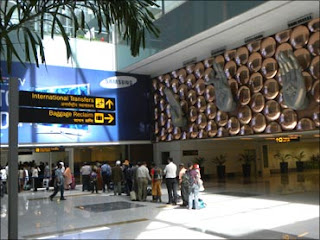How often do you feel an airline brand close to your heart that you do not wish to see any other beyond it? Especially in India, which is a price sensitive market despite a significant proportion of travellers travelling on company's money. And how often do you find your favourite airline providing you the best of deals when you need the most, when you wish to think like the second Indian customer?
Being a student in a college situated some 2000 kilometres away, journey by rail was not always the feasible option, especially when time was the limiting factor. And with the entry of newer players in the aviation industry like Indigo, Go Air, a price war erupted to benefit a lot of customers like us. Of course, things have changed now a bit, but back then, well, we were overjoyed. My first journey above the clouds was with SpiceJet from New Delhi to Guwahati. Too excited about the prospect of travelling in an air plane for the first time in my life, we reached the airport some 4 hours early. Part of the fact that our train's arrival time connecting Surat to Delhi was 6 hours ahead of the departure time of the flight. And since we had no plans for Delhi, we had no other option but to head straight to the airport. Had we had faith on the Delhi traffic, we may have made some plans, but well, we were scared. Never been inside an airport, I was awestruck by the aura of the place. And the moment you step inside, you get a "rich" feeling within you, even though you came in an auto after bargaining for 15 minutes. The food inside makes you feel hungry, but the price tags say "Home is only 2 and a half hours away". There is a common belief that when stars come together, everything else falls into place. In my case, the timings came together when it was time to leave home for college. The arrival time of the flight into Mumbai was so well knit with the departure time of the train from Mumbai that the combo was simply irresistible. And which was the airline to provide me that; well, JetLite it was. And the bonding so formed during my flight back to college after the first holidays had still continued. Sadly, the airline was recently rechristened as JetKonnect by its parent company Jet Airways.
The journey since then has been quite a good one and I have loved the simplicity and sincerity of the in flight as well as ground staff. There had never been any situation that needed any particular attention, so can not comment on their versatility at this point, but I'm sure they would have been as sincere as we would have wanted them to. Well, that's all for today. I have quite a many years to live more, and that means many more flight journeys. Hope to see me on board soon. Au revoir!

